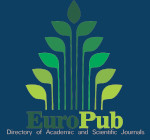Ensino de Geografia nas questões de gênero e sexualidade/orientação sexual - Escola Padre José Theisen
DOI:
https://doi.org/10.17648/diversitas-journal-v6i1-1539Abstract
ABSTRACT: In a culture that privileges the cisgender and heterosexual person, especially men, individuals who do not fit the sexual and gender pattern are treated as inferior. The general objective of the article is to contribute to the reflection about how teachers, specifically Geography, can collaborate for the transformation of the school space, which must belong to all, everyone and everyone, regardless of gender and sexual orientation. To fulfill this objective, the specific objectives are: to associate the teaching of Geography to the theme, to discuss about the social function of the school and to present possibilities of cartographic approach to issues of gender bias and LGBTphobia from school. In order to achieve the proposed objectives, a bibliographic survey was previously carried out on the theme of gender and sexuality and on citizenship and diversity at school, by authors and authors from geography and also from other areas of knowledge. The fieldwork was carried out at the Padre José Theisen Municipal School, located in the municipality of Craíbas, state of Alagoas. At school, the 9 ° Unique class was selected to carry out a cartographic activity, using pre-selected emojis that indicated the student's interpretation of the feeling that the offended groups may have when they are in the places inside the school . The methodology used to analyze the responses found in this activity was quantitative. The most used emojis were anger and fear. Through cartographic activity, it was possible to work prejudice spatially within the school, in addition to reflecting on the concept of place, which is so important in the individual's life.
KEYWORDS: School space, National Curriculum Parameters, LGBTphobia.
Metrics
References
ADICHIE, Chimamanda Ngozi. Para educar crianças feministas: um manifesto.1ª ed., São Paulo: Companhia das Letras, 2017.
BORRILLO, Daniel. HOMOFOBIA: História e crítica de um preconceito. Belo Horizonte: Autêntica Editora, 2010.
Brasil segue no primeiro lugar do ranking de assassinatos de transexuais. Disponível em: https://oglobo.globo.com/sociedade/brasil-segue-no-primeiro-lugar-do-ranking-de-assassinatos-de-transexuais-23234780. Acesso em: 21 nov. 2019.
BRASIL. Parâmetros Curriculares Nacionais (PCNs). Geografia. Brasília: MEC/Secretaria de Educação Fundamental, 1998. Disponível em: https://cptstatic.s3.amazonaws.com/pdf/cpt/pcn/volume-05-geografia.pdf. Acesso em: 06 out. 2019.
BRASIL. Parâmetros Curriculares Nacionais (PCNs). Orientação sexual. [s.d]. Disponível em: http://basenacionalcomum.mec.gov.br/images/pcn/orientacao.pdf. Acesso em: 06 out. 2019.
BRASIL.PROJETO PEDAGÓGICO. ESCOLA MUNICIPAL DE ENSINO FUNDAMENTAL PADRE JOSÉ THEISEN. EDUCAÇÃO INFANTIL-CRECHE-ENSINO FUNDAMENTAL 1° AO 9° ANO. Craíbas, 2017.
BRASIL. Resolução nº 175. Brasília: Poder Judiciário. ConselhoNacional de Justiça –CNJ., 2013. Disponívelem: https://atos.cnj.jus.br/files/resolucao_175_14052013_16052013105518.pdf. Acesso em: 11 set. 2019.
CAMARGO, Shelley Arruda Pinhal de; NETO, Luiz Ferraz de Sampaio. Sexualidade e gênero.Sorocaba: Revista da Faculdade de Ciências Médicas de Sorocaba, 2017. Disponível em:https://revistas.pucsp.br/RFCMS/article/view/35351/pdf. Acesso em: 13out. 2019.
CAVALCANTI, Lana de Souza. Ensino de Geografia e Diversidade. Construção de conhecimentos geográficos escolares e atribuição de significados pelos diversos sujeitos do processo de ensino. In: Castellar, Sonia (Org.). Educação geográfica: teorias e práticas docentes. 2. ed., 1ª reimpressão. São Paulo: Contexto, 2007.
DAMIANI. Amélia Luisa. A geografia e a construção da cidadania.In: ALESSANDRI, Ana Fani Carlos (Org.). A geografia na sala de aula. 6. ed. São Paulo: Contexto, 2004.
GREEN, Eli R.; MAURER, Luca. Redefinindo o gênero.NATIONAL GEOGRAPHIC BRASIL: A Revolução do Gênero: Novas identidades e comportamentos mudam a cara do século 21. Edição Especial, número 202, 114p, janeiro, 2017.
MELO, Beatriz Medeiros de.; PRADO, Juliana do.; ANDRIOLLI, Carmen. Livro da disciplina Projeto Político-Pedagógico e Gestão do Trabalho Escolar. Curso de Licenciatura em Ciências Sociais–EaD/UAB. Maceió: edUFAL. [s.d.].
MOREIRA, Ruy. O QUE É GEOGRAFIA. 5. ed. São Paulo. Ed: Brasiliense S.A. 1985.
ORNAT, Marcio Jose. Sobre espaço e gênero, sexualidade e geografia feminista.Ponta Grossa: Terr@Plural, 2008. Disponível em: https://www.researchgate.net/publication/289379277_Sobre_espaco_e_genero_sexualidade_e_geografia_feminista. Acesso em: 14 set. 2019.
RIBEIRO, Wagner Costa. Os lugares onde você vive. In: RIBEIRO, Wagner Costa. Por dentro da Geografia, 6° ano. 3. ed. -São Paulo: Saraiva, 2015.
SANTOS, Mayara Rodrigues dos, LIMA, Marcus Eugênio Oliveira; MENDONÇA, Priscila Ferreira. DESUMANIZAÇÃO DOS HOMOSSEXUAIS: AUTOPERCEPÇÕES E PERCEPÇÕES SOCIAIS. Disponível em: http://www.abrapso.org.br/siteprincipal/images/Anais_XVENABRAPSO/194.%20desumaniza%C7%C3o%20dos%20homossexuais.pdf. Acesso em: 11 set. 2019.
SANTOS, Milton. O Espaço do Cidadão. 7 ed., 2 reimpr. São Paulo: Editora da Universidade de São Paulo, 2014.
VESENTINI, J. W. Conceitos básicos da Geografia. Editora Abril Educação, 2010. Disponível em https://www.youtube.com/watch?v=kWeDhaNelyk. Acesso em:11 dez. 2018.
Downloads
Published
How to Cite
Issue
Section
License
Copyright (c) 2021 Gabriel de Souza

This work is licensed under a Creative Commons Attribution 4.0 International License.
The Diversitas Journal expresses that the articles are the sole responsibility of the Authors, who are familiar with Brazilian and international legislation.
Articles are peer-reviewed and care should be taken to warn of the possible incidence of plagiarism. However, plagiarism is an indisputable action by the authors.
The violation of copyright is a crime, provided for in article 184 of the Brazilian Penal Code: “Art. 184 Violating copyright and related rights: Penalty - detention, from 3 (three) months to 1 (one) year, or fine. § 1 If the violation consists of total or partial reproduction, for the purpose of direct or indirect profit, by any means or process, of intellectual work, interpretation, performance or phonogram, without the express authorization of the author, the performer, the producer , as the case may be, or whoever represents them: Penalty - imprisonment, from 2 (two) to 4 (four) years, and a fine. ”















.png)




